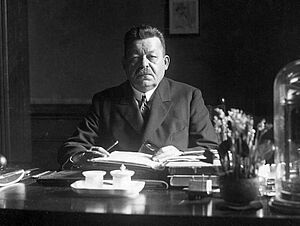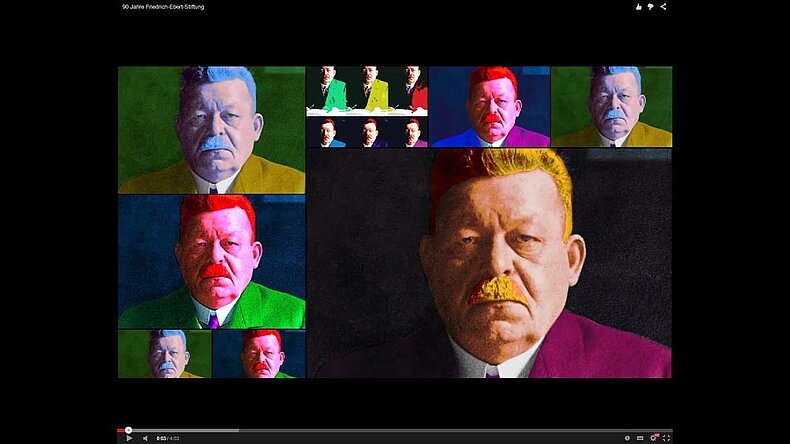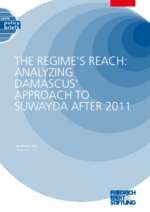Friedrich Ebert (1871-1925)
Friedrich Ebert served as the first President of the Weimar Republic from 1919 to 1925.
He advocated the development of parliamentary democracy, viewed himself as the president of all Germans, and was committed to a politics geared to social balance and compromise. Born on 4 February 1871 in Heidelberg as son of a tailor, Ebert went on from primary school to learn the saddler’s trade. In 1889 he joined the Social Democratic Party of Germany (SPD), at the same time becoming active in the saddlers’ union. Working in Bremen as an innkeeper, in 1893 Ebert was appointed to the editorial board of the Bremer Bürgerzeitung, the local organ of the SPD. A year later he became the local party chairman. In the same period he was also elected chairman of the Bremen saddlers’ union and as member of the Bremen city council.
In 1905, Ebert resettled to Berlin where he was elected to the SPD’s executive board. Aged 34 – as its youngest member – he devoted himself chiefly to organizational matters. In 1912, Ebert was elected member of the Reichstag, the Imperial Parliament, with the SPD claiming a historic election victory and becoming the largest parliamentary group. During World War I, Ebert who had been elected chairman of the SPD in 1913, sought – ultimately in vain – to hold together the party’s wings, which had become divided over the issue of war credits. Following the demise of the German monarchy, Ebert, in the course of the November Revolution of 1918, briefly served as Imperial Chancellor (Reichskanzler). He successfully prevented the establishment of a system of workers’ councils patterned on the Russian Soviet model and managed to hold elections for a democratic German National Assembly. This was a clear commitment to parliamentary democracy – in the face of resistance, even in the SPD – and it set the stage for a German society based on liberty and pluralism. Elected Imperial President in 1919, Ebert faced numerous crises with government coalitions disintegrating, the economic situation worsening, and political assassinations poisoning the political atmosphere.
Ebert’s political choices – made in view of the need to protect Germany’s new parliamentary democracy – were highly controversial among Germans. Ebert himself was subjected to libel and slander, some of it of a highly personal nature. True to his credo "Democracy needs democrats!", Ebert promoted universal access to higher education, extensive political education and political participation. These aims also became enshrined in his idea to create a foundation, which was motivated by his personal – often painful experience – in managing to rise through the ranks and in facing political confrontation. In his testament, Friedrich Ebert asked for donations from mourners instead of funeral flowers, thus providing for the financial basis of the foundation. Following his untimely death in 1925, the Friedrich Ebert Foundation was established, and in it his political legacy lives on today.






![[Syria's trade unions under the scope]](https://syria.fes.de/uploads/pics/digbibcache/publication_20829_150.jpg)
